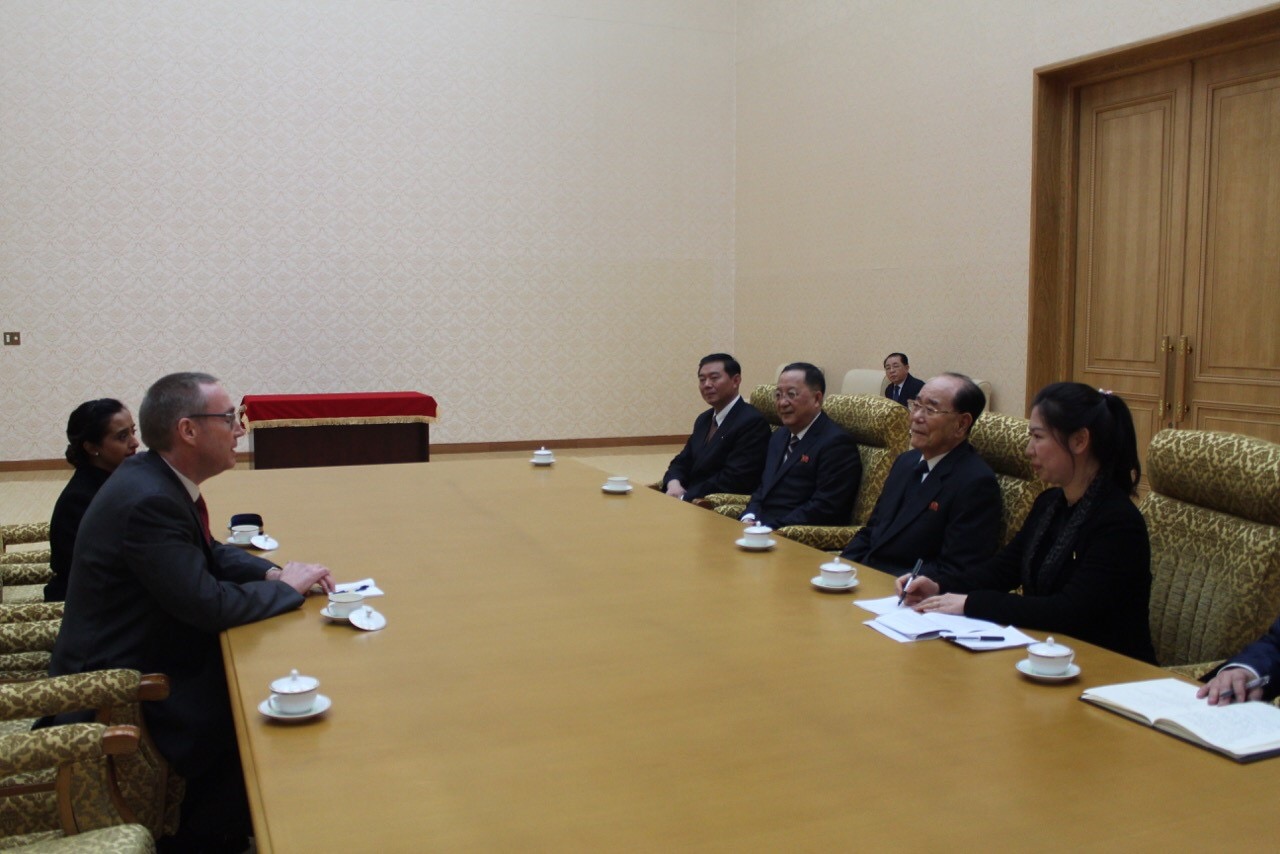Representing the UK in North Korea

It’s now two months since I started my dream job – British Ambassador to the DPRK (North Korea). This country has long held a fascination for me, even before my first Foreign Office posting, to South Korea. I also had a chance to spend a summer working in the Embassy here in the North in 2008. My first few weeks in Pyongyang this time round have been a chance to compare today’s North Korea with my very vivid memories of ten years ago.
The biggest surprise for me has been how much brighter Pyongyang looks. It has long been the country’s showcase capital. In recent years many new building projects have made the city look much more prosperous. Shops and businesses line the streets, people can go to gyms, saunas and coffee shops, and streetlights and traffic lights are switched on. Traffic is still light compared with my last two postings in Beijing and Jakarta, but now there are many more taxis ferrying people around the city. Other cities, too, seem to have enjoyed some investment in the last ten years.
The North Korean countryside has changed less since 2008. Here nearly empty roads stretch into the distance, with people relying mostly on bicycles or ox-carts – or walking – for local transport. Some other things have not changed: where in the West we would expect to see adverts, in North Korea political propaganda posters and slogans are ever-present, many praising the Leader Kim Jong Un, but also promoting economic development, education and technological innovation. In Pyongyang everyone carries a mobile phone now, but none are connected to the internet: instead, people use the country’s internal network to access information approved by the authorities. As I write, the date and time of the next summit between President Trump and Chairman Kim Jong Un have not yet been revealed to North Koreans.
Reporting on issues linked to the Summit is one of the main tasks of our Embassy. We have had a UK presence here continuously since 2001. There have been tense times during this period, not least the last couple of years as international tensions rose over the DPRK’s nuclear and ballistic missile programme. We earnestly hope the process of negotiations will lead to denuclearisation, as the leaders have already agreed, and help create conditions for resolving the many other issues on which we disagree.
It’s a unique privilege to be living and working in North Korea at this crucial time, especially as the Americans and many of our other allies do not have a presence here. It is a particular pleasure to interact with North Koreans, in meetings or daily life, and to adapt my Korean languages skills learned in the South to the North Korean dialect. If tensions continue to ease, I hope we will be able to expand this Embassy’s role as a window on the world for North Koreans, and a channel of communication with what remains one of the most closed and secretive of countries. You can follow some of my activities here on Twitter @colincrooks1.
